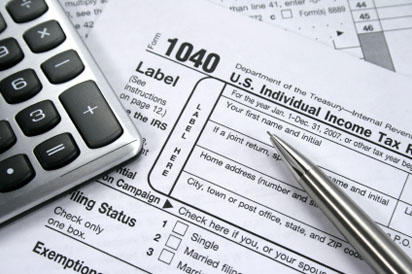Whether you invest in stocks, real estate or even rare coins, a basic understanding of capital gains and losses may help you lower your tax bill. Here is an overview to help you navigate this confusing part of the federal tax code.
What's a capital gain?
A capital gain is an increase in the value of any capital asset you own. The IRS defines a capital asset as "almost everything you own or use for personal purposes or investment," including stocks, bonds, your home, personal property and collectibles. Capital gains or losses do not flow through to your tax return until you actually sell the asset.
If you sell an asset at a higher price than your total costs, that's a capital gain. On the other hand, if you sell at a lower price than you paid, that's a capital loss.
How are capital gains and losses calculated?
A capital gain or loss is the difference between the proceeds of your sale and what you originally paid, including any transaction fees or cost of capital improvements. If you sell an asset you inherited, the capital gain or loss is normally based on its value at the time of the owner's death.
How are capital gains taxed?
Capital gains are taxed at different rates, depending on:
- How long you hold the asset.
The IRS classifies capital gains as either short or long term. If you hold a capital asset for at least a year plus a day, any profit is considered a long-term capital gain. Short-term capital gains are from sales of assets owned for one year or less.
Short-term capital gains are taxed as ordinary income (at your regular tax rate), while long-term capital gains are taxed at various rates, depending on the type of asset and your federal income tax bracket.
- The type of asset you have.
Type of long-term asset Maximum capital gains tax rate Stocks, bonds, mutual funds 23.8% **a Property and real estate (other than primary residence **b) 25% Collectibles (stamps, coins, etc.) 28% **a Includes 3.8% Medicare investment surtax on certain high-income taxpayers
**b Sale of primary residence has unique rules; see IRS Publication 523
- Your income from other sources.
If your overall income is low, you may not have to pay capital gains taxes: People in the 10% or 15% federal income tax brackets owe no taxes on long-term capital gains.
How can I lower my tax burden from capital gains?
Knowing the tax implications before you sell can go a long way toward helping you navigate the best course. For example, it may make sense to delay a sale until a year in which your income is lower or put off a December sale until January to shift the gain to the following tax year.
The IRS allows you to use capital losses to offset capital gains realized in the same year. If your capital losses exceed your capital gains, you can offset up to $3,000 of ordinary income (an exception is $1,500 if married filing separately). If your capital losses exceed these limits, you can carry over the remaining amount to future years.
Get tax help
Capital gains tax rules can be complex, and they change over time. Consult a professional tax advisor to ensure you're making informed decisions.









